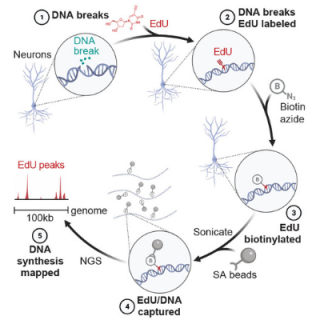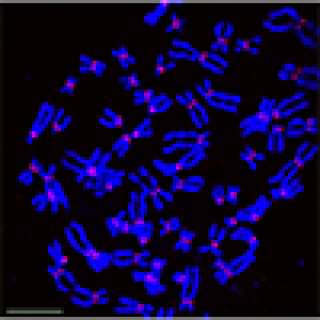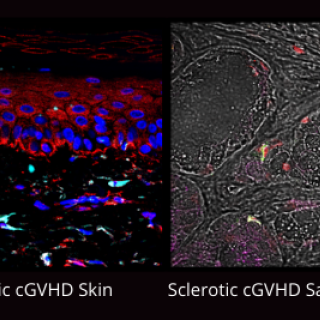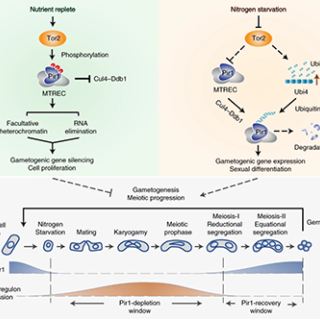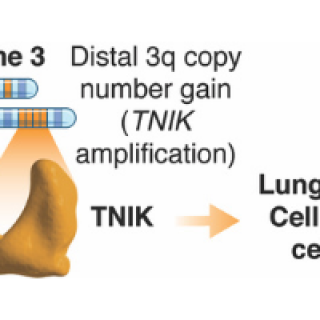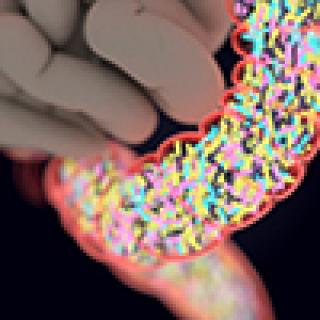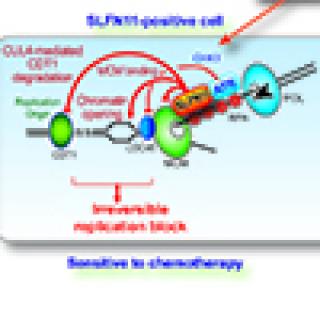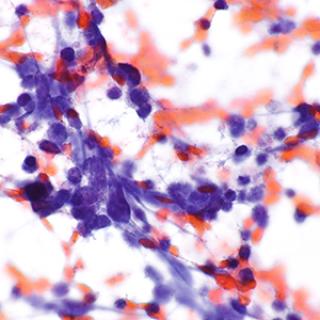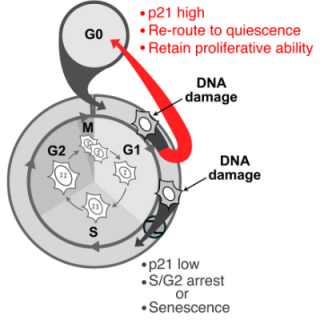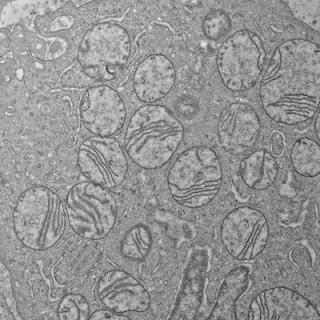Our Discoveries
Hotspots for DNA damage and repair in neurons identified
Researchers have pinpointed hotspots along the genome of neurons where endogenous, or internally driven, DNA breaks and repair accumulate. If the breaks are not repaired rapidly, they can lead to neuron dysfunction, degeneration and death.
Read MoreNew finding reveals how some cancers gain or lose chromosomes
Some cancers have an abnormal number of chromosomes, and patients with these cancers tend to have a worse prognosis. CCR researchers have uncovered how overexpression of just one protein can cause these chromosome abnormalities – hinting at a mechanism that could be therapeutically targeted.
Read MoreDrug lessens symptoms of severe chronic graft-versus-host disease
About half of patients who receive allogeneic stem cell transplants, a treatment for blood cancer, develop a difficult-to-treat condition called chronic graft-versus-host disease (cGVHD). CCR investigators have found that pomalidomide, an immune-modulating drug, can reduce symptoms in patients with severe cases of cGVHD.
Read MoreA key mechanism that fuels uncontrolled cell growth is uncovered in yeast
Scientists have long wondered how cancer cells use a protein complex, called TOR, to survive and proliferate in nutrient-poor conditions. Now, CCR researchers have discovered how a protein that is targeted by TOR drives this process, which holds important implications for understanding cancer and some genetic disorders.
Read MorePotential therapeutic target for lung squamous cell carcinoma identified
CCR researchers have identified the protein TNIK as a therapeutic target for lung squamous cell carcinoma, the second most common type of lung cancer. Using human lung cancer cells transplanted into preclinical models, researchers found that the cells responded to a pharmacological treatment that inhibited TNIK and also resulted in cell death in the transplanted tumor cells.
Read MoreFecal microbiota transplants help patients with advanced melanoma respond to immunotherapy
A collaborative study between the National Cancer Institute (NCI) and the UPMC Hillman Cancer Center at the University of Pittsburgh suggests that fecal microbiota transplants can help patients with advanced melanoma respond to immunotherapy. “Our study is one of the first to demonstrate in patients that altering the composition of the gut microbiome can improve the response to immunotherapy,” says study co-leader Giorgio Trinchieri, M.D., Chief of CCR’s Laboratory of Integrative Cancer Immunology.
Read MoreNew way to address chemoresistance linked to the protein SLFN11
CCR researchers have discovered two complementary roles for the protein Schlafen-11 (SLFN11) in determining patient response to chemotherapy. These findings have implications for how to overcome this resistance and provide new treatment options for patients with small cell lung cancer (SCLC) and many other cancers.
Read MoreGenetics, not just smoking, influence small cell lung cancer risk
People with mutations in DNA repair genes may be more likely than others to develop small cell lung cancer. Identifying these mutations in patients could help guide treatment decisions.
Read MoreNew findings show how damaged cells survive the cell cycle
As cells divide and replicate, important safety checkpoints are in place to ensure that most faulty cells with damaged DNA do not survive the cell cycle. In a new twist, CCR researchers discovered how some damaged cells use molecular inertia to drive past these safety checkpoints and continue through the cell cycle.
Read MoreNew insights into what fuels an aggressive form of kidney disease
Researchers have uncovered a key mechanism behind an aggressive form of kidney cancer, whereby cells lacking an important enzyme are unable to replicate and maintain healthy mitochondrial DNA. This results in more genetic abnormalities in the cells, fueling the growth and spread of cancer.
Read More